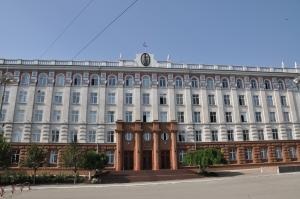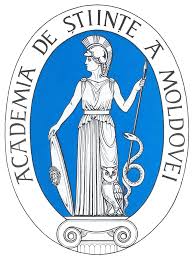
The Academy of Sciences of Moldova (hereinafter referred to as the Academy of Sciences - ASM) is a public institution of national importance, autonomous and independent of the state authorities and successor to the Academy of Sciences of the Moldovan SSR, established on August 2, 1961, reorganized based on the Science and Innovation Code no. 259-XV of July 15, 2004, with subsequent changes and additions.
The Academy of Sciences carries out its activity in accordance with the Constitution of the Republic of Moldova, the Code on Science and Innovation no. 259-XV of July 15, 2004, republished in the Official Monitor of the Republic of Moldova no. 58-66 / 131 of 23.02.2018, with other normative acts, with the international treaties to which the Republic of Moldova is a party and with the Statute of the Academy of Sciences of Moldova (in new wording) approved by the Decision of the General Assembly of the Academy of Sciences of Moldova no. 1/2 of January 24, 2019.
The Academy of Sciences brings together personalities with outstanding achievements in the fields of research, innovation, and culture: titular members (academicians), corresponding members, honorary members and scientific researchers, elected as members of the science departments. The titular members and corresponding members of the Academy of Sciences are scientists and people of high civic standing, well-known specialists in the field, citizens of the Republic of Moldova, who have distinguished themselves by works of great theoretical or practical value and have contributed considerably to the development of national science and culture. Honorary members of the Academy of Sciences are prestigious personalities from the country and abroad, who have achieved remarkable results in science and culture, support the Academy of Sciences, actively participate in technical and scientific cooperation with organizations in the fields of research and innovation in Moldova.
The main attributions of ASM:
- Acts as the Government's strategic consultant in setting priorities in the field of basic and applied research;
- Consults, upon request, draft normative acts in the fields of research, innovation, and culture;
- Develops forecasts on the development of research and innovation;
- Elaborates and submits to the Government the report on the state of science, which should reflect the policies developed and how to implement them at the national level;
- Submits an annual report to the Government on its activity;
- Consults the Government on the creation and development of public infrastructure for research and innovation;
- Consults the central specialized body of the state, responsible for the elaboration of the national policy in the fields of research and innovation, when determining the name of the fields, branches, profiles, and scientific specialties;
- Organizes public hearings on issues of national interest;
- Organizes national and international scientific events;
- Organizes the election of titular members, corresponding members, honorary members in accordance with this statute and other normative acts;
- Sustains and publicizes the results of research and development;
- Determines the partners and the optimal forms of cooperation, establishing collaboration relations with institutions and organizations from the country and from abroad;
- Develops and carries out national and international scientific research projects, independently or in partnership with national and foreign institutions;
- Awards, honors, and honorary titles established by the Academy of Sciences;
- Contributes to the internationalization of research and promotes integration into the European research area;
- Exercises other attributions in the fields of research, innovation, and culture, which derive from the provisions of the normative framework.
The supreme representative body of the Academy of Sciences is the General Assembly of the Academy of Sciences, which brings together members of the science departments.
The Academy of Sciences collaborates with universities, research institutes, public associations, and other profile structures in the fields of research and innovation. The Academy of Sciences promotes affiliation to regional, European and international technology platforms for the use of research and innovation infrastructure. In order to participate in programs in the fields of research and innovation, the Academy of Sciences, members of the science departments may create, by association, groups of scientific researchers and consortia in the fields of research and innovation with individuals and legal entities with any type of property and legal form organization, including from outside the Republic of Moldova.
The institutional financing of the Academy of Sciences is carried out according to the State Budget Law based on the regulation approved by the Government. The funds of the national public budget, intended for the Academy of Sciences, are used according to the normative acts in force. The distribution and use of financial means is carried out in accordance with the decision of the Presidium, which is responsible for the efficient use of financial means, according to the approved estimate of income and expenditure.
The patrimony of the Academy of Sciences consists of all the material and immaterial goods, necessary for the fulfillment of the attributions provided by law and by the ASM Statute.
The Academy of Sciences has corporate symbols: crest; flag; hymn; faleristic signs; badges of the titular member; the corresponding member and honorary member of the Academy of Sciences; uniform; other visual or auditory emblems identifying the Academy of Sciences.
The headquarters of the Academy of Sciences - mun. Chișinău, bd. Ștefan cel Mare și Sfînt, no. 1.
